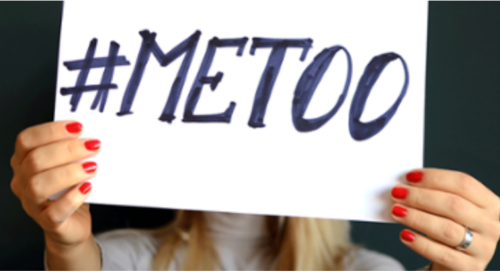Compliance works best when an organization hires the right people and nurtures a respectful and collaborative culture, creating an environment where conduct adheres to policies and rules not because they are in place but because it is the right thing to do.
As the #MeToo movement continues to affect the business world, it exposes a weak spot in compliance: If compliance is doing its job well, why are there so many cases of workplace harassment and abuse?
It's a question that came up during a keynote address on Tuesday at the Society of Corporate Compliance and Ethics conference in Las Vegas.
"Have we failed as a compliance community in this case?" asked Rebecca Walker, partner at law firm Kaplan & Walker LLP. "What changed in society is what brought us to #MeToo. Why haven't we done a better job of fixing this situation? What should we be doing better?"
Panel moderator Jenny O'Brien, chief compliance officer at United Healthcare Inc., said while she doesn't think compliance should own this issue--the responsibility for investigating and taking action resides at the top levels of the company--she agreed compliance can and should do more.
Robin Everhart, senior vice president and chief diversity officer at Cintas Corp., said while compliance doesn't own the investigation process, it has responsibility for oversight. And while compliance shouldn't do the heavy lifting on this issue, it should feel "empowered to challenge when what we are doing is not enough," she said.
While compliance helped to get people to report harassment, it "didn't create the environment where people felt they could say something," said Everhart. It wasn't until senior leadership began saying they weren't going to accept this behavior anymore that movement began occurring.
"Compliance needs the courage to approach business leaders to generate that realization," said Everhart, as the response of the C-suite and board "determines if employees will say something...determines if an employee stays" with the organization.
It's a matter of trust, said Paul Fiorelli, professor of legal studies and director of the Cintas Institute for Business Ethics at Xavier University. Most women who do report are fearful they won't be heard, or will face retaliation or career stagnation. "It's a barrier you have to overcome," he said.
Complicating the situation are employee discipline and privacy rules that may prevent a company from telling someone what actions were taken after they came forward. That leaves people to wonder: "if I don't see it, how do I know you listened to me?" said Fiorelli.
So it's important to make clear to the woman or man making allegations that, while they may not see outward action, they need to trust that leadership is acting on those claims, he said.
So how does a company build trust?
Employees will take notice when a company's top performers are disciplined or fired because they harass or treat people poorly, said Everhart. "That shows we take values seriously," she said. "It's not longer just about performance; it's about character and leadership development."
Despite the progress being made through #MeToo, Everhart said trust must be rebuilt by starting with the little things--such as when men address women colleagues by calling them "hon" or "babe." Until that happens, "they won't trust us," she said.
Compliance leaders need to learn to interrupt if such moments happen when they are present; maybe say: "Her name is Pam," or something to that effect, and use it as a way to educate, said O'Brien.
It's difficult for some women to speak out because they expect to be blamed for wearing a short or low-cut blouse, and that such victim-blaming must stop, said Walker.
"Part of the discussion we have to have is...it's not just saying 'I hear you and I empathize with you,' but also, 'I hear you and it happened to me, too," said Walker. "How do we help the vulnerable, how do we support them? That's our job. That's our role."
Part of the task lies in reframing the conversation about #MeToo in a more positive light, by making the economic case for inclusion and diversity and how these drive better productivity and retention, said Fiorelli.
There is a lot of work to be done but it's vital to remember it can't be done all at once, said Everhart. "It can feel overwhelming, but you can create change," she said. "Never stop trying."
Click here to learn more about LRN’s workplace harassment prevention.
